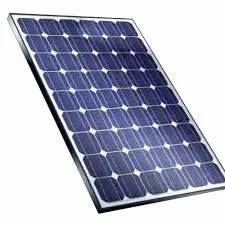solar string inverter
The Solar String Inverter A Key Component in Photovoltaic Systems
In the quest for sustainable energy solutions, solar power has emerged as a leading choice for both residential and commercial applications. At the heart of many photovoltaic (PV) systems lies a crucial component known as the solar string inverter. This device plays a pivotal role in converting the direct current (DC) generated by solar panels into alternating current (AC), which is essential for powering homes and feeding electricity back into the grid.
Understanding the Basic Function
A solar string inverter is designed to connect multiple solar panels, or a string of panels, to a single inverter unit. The inverter takes the collected DC electricity and transforms it into AC, which is compatible with the electricity used in typical household appliances and the electric grid. The efficiency of this conversion is paramount; any lost energy during the process can significantly affect the overall output of a solar energy system.
One of the advantages of string inverters is that they allow for a modular design. Homeowners can start with a small number of solar panels and expand their systems by adding more panels and adjusting the inverter accordingly. This scalability is appealing to those who may want to invest in solar power gradually.
Advantages of Solar String Inverters
1. Cost-Effectiveness String inverters are generally less expensive than other inverter types, such as microinverters or central inverters. Their simpler design and installation reduce both equipment and labor costs, making them an attractive option for budget-conscious consumers.
2. Reliability With fewer moving parts and a straightforward setup, string inverters are less prone to mechanical failures. They also require minimal maintenance, contributing to lower long-term operational costs.
solar string inverter

3. Efficiency in Well-Matched Systems When solar panels are installed in optimal conditions where they receive uniform sunlight, string inverters perform exceptionally well. They effectively manage the energy output of the connected panels, maximizing the overall efficiency of the system.
Limitations of Solar String Inverters
Despite their numerous advantages, solar string inverters do have some limitations. The performance of a string inverter can be compromised if the panels in the string experience shading or if they are oriented in different directions. In such cases, the energy production of the entire string can drop, as the weakest panel will determine the total output.
Additionally, string inverters typically require higher installation voltages, which can pose challenges in certain installation scenarios. Homeowners who have rooftops with multiple angles or varying shading conditions might find that microinverters or power optimizers offer more flexibility and efficiency.
The Future of Solar Technology
As solar technology continues to advance, we can expect innovations to emerge that enhance the performance of string inverters. Smart inverters, with enhanced monitoring and grid-interactive capabilities, are already beginning to see widespread adoption. These advanced devices could optimize the energy output further, allowing for better integration with smart home systems and the power grid.
In conclusion, solar string inverters play a fundamental role in the adoption of solar energy, providing a reliable and cost-effective solution for converting solar power into usable electricity. For homeowners and businesses alike, understanding the function and advantages of string inverters can significantly impact the decision-making process when investing in solar technology. As this field continues to evolve, advancements in inverter technology may drive even greater efficiencies and capabilities, paving the way for a more sustainable energy future.
-
Unlocking Energy Freedom with the Off Grid Solar InverterNewsJun.06,2025
-
Unlock More Solar Power with a High-Efficiency Bifacial Solar PanelNewsJun.06,2025
-
Power Your Future with High-Efficiency Monocrystalline Solar PanelsNewsJun.06,2025
-
Next-Gen Solar Power Starts with Micro Solar InvertersNewsJun.06,2025
-
Harnessing Peak Efficiency with the On Grid Solar InverterNewsJun.06,2025
-
Discover Unmatched Efficiency with the Latest String Solar InverterNewsJun.06,2025







